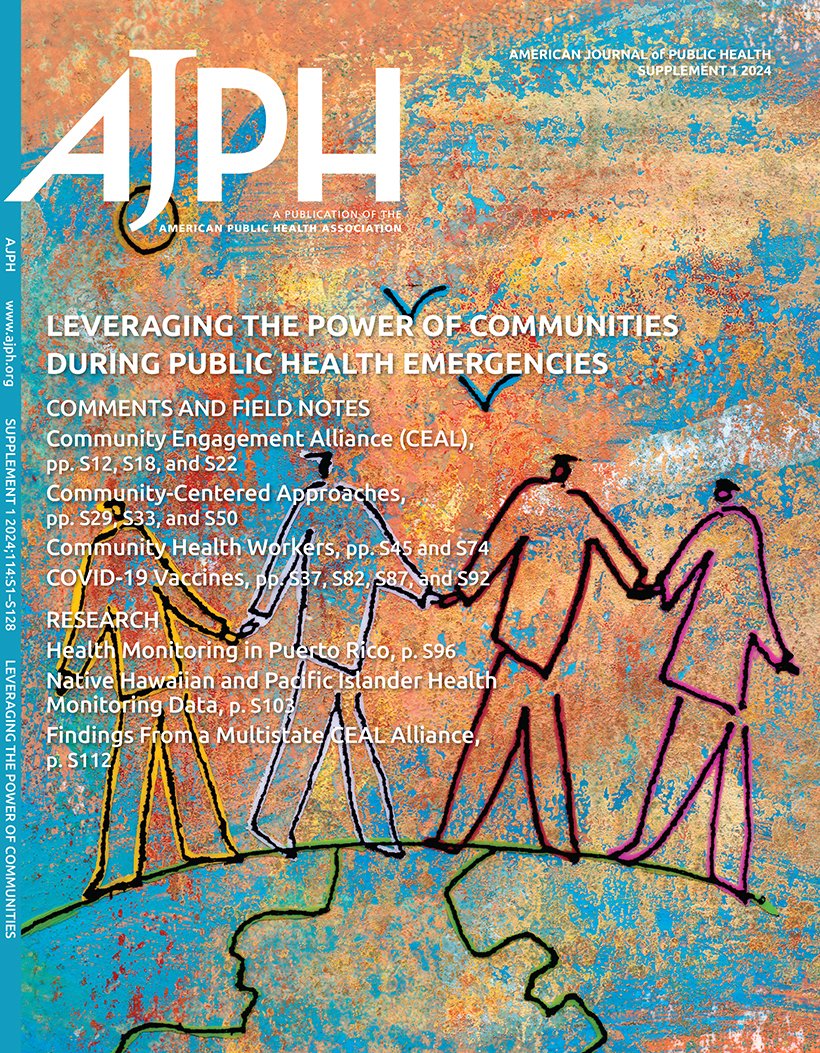印度的跨性别妇女:解决艾滋病毒护理差距的综合和交叉框架。
IF 9.6
1区 医学
Q1 PUBLIC, ENVIRONMENTAL & OCCUPATIONAL HEALTH
引用次数: 0
摘要
印度跨性别妇女(TGW)的艾滋病毒感染率高得不成比例,估计为4%至8%,而全国平均水平为0.2%。尽管政府提供了免费的抗逆转录病毒治疗(ART),但TGW遇到了多重障碍——包括耻辱、贫困和缺乏性别肯定护理——阻碍了艾滋病毒护理的获得和保留。在印度,现有的行为框架未能解决系统性压迫对感染艾滋病毒的妇女健康造成的复杂影响。我们提出了一个整合综合症理论和交叉性的概念框架,以检查形成艾滋病毒护理障碍的结构和综合症因素。该框架由主要信息提供者(包括HIV感染者、社区领袖、卫生服务提供者和印度研究人员)提供信息,强调了系统性边缘化(特别是通过歧视性政策)如何塑造社会地位并加剧艾滋病毒护理结果的不平等。它还强调了社区动员和集体行动在克服这些障碍方面的作用。该框架为针对三峡水库需求的干预措施提供了基础。通过以社区驱动的战略为中心,解决结构性不平等问题,它为改善印度TGW的艾滋病毒护理参与和健康成果提供了一条途径。公共卫生。2025年5月1日在线出版:e1-e9。https://doi.org/10.2105/AJPH.2025.308046)。本文章由计算机程序翻译,如有差异,请以英文原文为准。
Transgender Women in India: A Syndemic and Intersectional Framework Addressing HIV Care Gaps.
The prevalence of HIV among transgender women (TGW) in India is disproportionately high, estimated at 4% to 8% in comparison with the national average of 0.2%. Despite free antiretroviral therapy (ART) provided by the government, TGW encounter multilevel barriers-including stigma, poverty, and lack of gender-affirming care-that hinder HIV care access and retention. Existing behavioral frameworks fail to address the compounded effects of systemic oppression on the health of TGW with HIV in India. We present a conceptual framework integrating syndemic theory and intersectionality to examine structural and syndemic factors shaping HIV care barriers. Informed by key informants-including TGW with HIV, community leaders, health providers, and Indian researchers-the framework highlights how systemic marginalization, particularly through discriminatory policies, shapes social position and exacerbates inequities in HIV care outcomes. It also underscores the role of community mobilization and collective action in overcoming these barriers. The framework provides a foundation for interventions tailored to the needs of TGW. By centering community-driven strategies and addressing structural inequities, it offers a pathway to improve HIV care engagement and health outcomes among TGW in India. (Am J Public Health. Published online ahead of print May 1, 2025:e1-e9. https://doi.org/10.2105/AJPH.2025.308046).
求助全文
通过发布文献求助,成功后即可免费获取论文全文。
去求助
来源期刊

American journal of public health
医学-公共卫生、环境卫生与职业卫生
CiteScore
9.50
自引率
3.90%
发文量
1109
审稿时长
2-4 weeks
期刊介绍:
The American Journal of Public Health (AJPH) is dedicated to publishing original work in research, research methods, and program evaluation within the field of public health. The journal's mission is to advance public health research, policy, practice, and education.
 求助内容:
求助内容: 应助结果提醒方式:
应助结果提醒方式:


